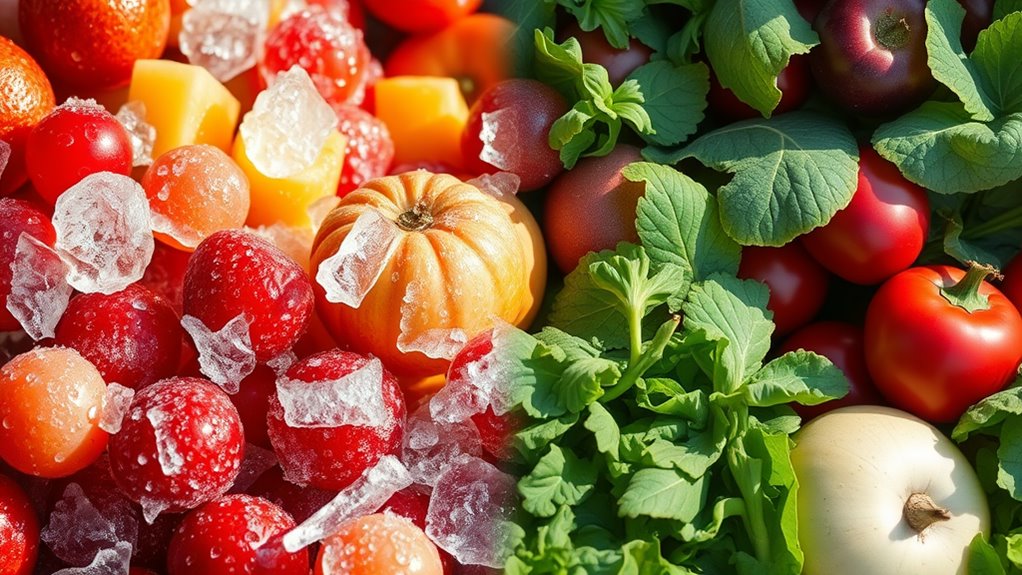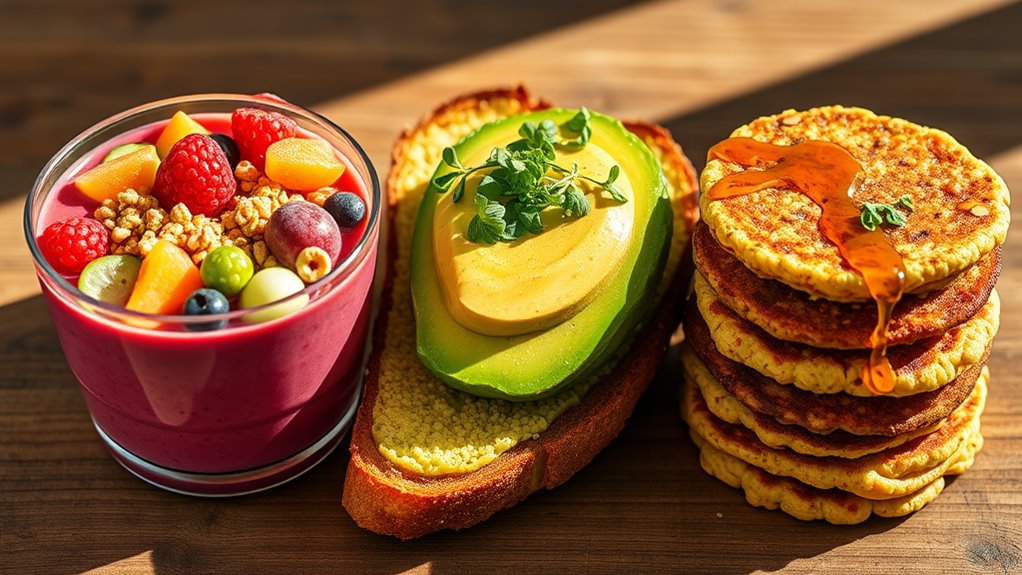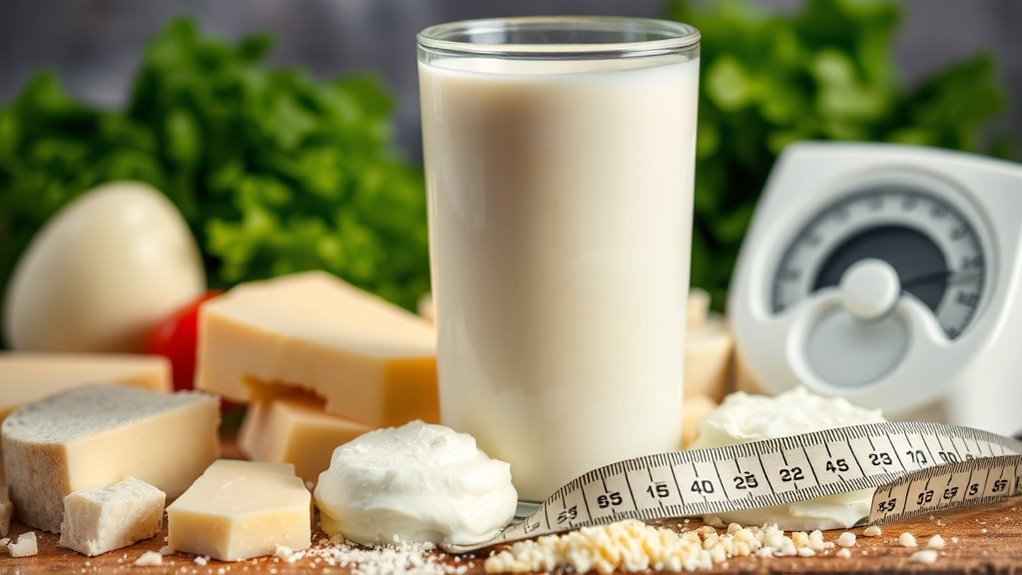Frozen vs. Fresh- Which One’s Really Healthier.
When you think about nutrition, is fresh always better than frozen? Surprisingly, both frozen and fresh produce can be equally nutritious. The freezing process preserves essential vitamins and minerals that fresh items often lose during transport. However, factors like handling and personal taste preferences play a crucial role in your choices. So, how do you decide which option truly supports your health goals? Let’s explore the nuances between these two options further.
Nutritional Value Comparison
When it comes to choosing between frozen and fresh foods, how do their nutritional values stack up?
Many believe fresh food is always superior, but this frozen food myth doesn’t hold up under scrutiny.
Studies show that frozen fruits and vegetables can retain comparable, if not superior, nutrient levels due to their quick freezing process, which preserves vitamins and minerals. In fact, the quick freezing process helps maintain the quality of nutrients that might otherwise degrade in fresh produce. Conversely, fresh produce can lose nutrients during transport and storage.
While both options have their merits, you might find that frozen foods offer a convenient, nutrient-rich alternative to fresh, especially when it comes to maintaining your health and dietary goals.
The Freezing Process and Its Impact
The freezing process plays a crucial role in preserving the quality and nutritional integrity of foods.
When fruits and vegetables are quickly frozen shortly after harvest, they retain their vitamins and minerals more effectively than those stored for long periods.
Quickly freezing fruits and vegetables right after harvest preserves their vitamins and minerals better than prolonged storage.
This rapid freezing halts enzyme activity that can lead to spoilage and nutrient loss.
Studies show that frozen produce can maintain comparable nutrient levels to fresh varieties, especially when fresh items are stored for days or weeks.
Additionally, freezing helps reduce waste, allowing you to enjoy seasonal produce year-round while ensuring you get the nutrients your body needs. Furthermore, freezing preserves nutrients better than many other preservation methods, making it a smart choice for maintaining a healthy diet.
Fresh Produce: Benefits and Drawbacks
Fresh produce offers a variety of benefits that can enhance your diet, but it also comes with certain drawbacks. Eating fresh fruits and vegetables can provide essential vitamins and minerals, improving your overall health. However, they can spoil quickly, leading to food waste. Additionally, incorporating seasonal foods into your meals can further maximize their nutritional benefits.
| Benefits | Drawbacks |
|————————-|————————-|
| Nutrient-rich | Short shelf life |
| Better taste | Requires preparation |
| Supports local economy | Seasonal availability |
Balancing fresh produce in your diet is essential. Understanding these factors helps you make informed choices about what to include in your meals.
Frozen Fruits and Vegetables: A Closer Look
When you consider frozen fruits and vegetables, it’s essential to evaluate their nutrient retention compared to fresh options.
Research shows that freezing can preserve vitamins and minerals effectively, making them a convenient choice when fresh produce isn’t accessible. Additionally, their long shelf life means you can easily incorporate them into your meals without the risk of spoilage. Furthermore, studies indicate that frozen produce can retain nutrient retention comparable to fresh items, particularly if they are frozen shortly after harvesting.
Nutrient Retention Comparison
How do frozen fruits and vegetables stack up against their fresh counterparts in terms of nutrient retention?
Research shows that freezing can preserve nutrients effectively, often better than fresh produce that might sit on store shelves.
Here are three key points to consider:
-
Vitamin C: Frozen fruits and vegetables maintain higher levels of Vitamin C compared to fresh ones that lose potency over time.
-
Antioxidants: The freezing process helps retain antioxidants, crucial for combating oxidative stress.
-
Mineral Content: Minerals remain largely unaffected during freezing, ensuring you get essential nutrients.
In many cases, frozen options can be just as nutritious, if not more so!
Convenience and Accessibility
Although fresh produce often takes the spotlight, frozen fruits and vegetables offer unparalleled convenience and accessibility for busy lifestyles.
You can grab a bag from the freezer, toss it into your meals, and enjoy them year-round without worrying about spoilage.
Studies show that frozen options often retain nutrients comparable to fresh produce, making them a smart choice.
Additionally, they save you time on washing, chopping, and preparation.
Whether you’re whipping up a quick smoothie or a hearty stir-fry, frozen fruits and vegetables provide an easy way to incorporate nutritious options into your diet, ensuring you stay healthy despite a hectic schedule.
Cost-Effectiveness of Frozen vs. Fresh
When comparing the costs of frozen and fresh foods, you’ll find that frozen options often provide more bang for your buck.
Fresh produce can spoil quickly, leading to waste and added expenses, while frozen fruits and vegetables maintain their nutritional value and shelf life.
Price Comparison
What makes frozen foods a more cost-effective choice than their fresh counterparts?
First, frozen produce often costs less due to fewer spoilage and transportation costs.
Second, you can buy in bulk and store them longer, reducing the need for frequent shopping trips.
Lastly, frozen items typically maintain their nutritional value, meaning you get more bang for your buck.
Here’s a quick price comparison:
-
Bulk Buying: Frozen foods allow you to purchase larger quantities at discounted rates.
-
Longer Shelf Life: Less waste means you save money in the long run.
-
Seasonal Pricing: Frozen foods can be cheaper out of season.
Waste Reduction Strategies
A significant amount of food waste occurs in households, and implementing effective waste reduction strategies can enhance the cost-effectiveness of your food choices.
Frozen foods often have a longer shelf life than fresh produce, allowing you to buy in bulk without the fear of spoilage.
By planning meals and properly storing leftovers, you maximize your food investment.
Studies show that families using frozen fruits and vegetables waste 25% less food compared to those who rely solely on fresh.
Additionally, buying frozen items can reduce trips to the store, saving time and transportation costs, ultimately making your food budget work harder for you.
Convenience and Accessibility
Here are some key points to consider:
-
Storage: Frozen foods last longer, reducing trips to the store and minimizing spoilage.
-
Preparation: Fresh foods may require more prep time, but they can offer quicker cooking methods, like steaming or sautéing.
-
Availability: Fresh produce varies seasonally, while frozen options provide year-round access to a diverse range of fruits and vegetables.
Additionally, meal planning strategies can help you efficiently incorporate both fresh and frozen options into your diet, ensuring you always have nutritious meals ready to go.
Ultimately, your choice depends on your lifestyle and preferences, balancing convenience with nutritional value.
Best Practices for Choosing Healthy Options
How can you make the healthiest choices when selecting between frozen and fresh foods?
Start by checking labels for added sugars, sodium, and preservatives.
Fresh produce should be vibrant and firm, indicating ripeness and nutrient density.
For frozen options, choose those without sauces or added ingredients.
Consider seasonal produce for freshness and affordability. Seasonal detox foods can enhance your diet while providing essential nutrients.
Remember, freezing can preserve nutrients, especially if the food is flash-frozen soon after harvest.
When in doubt, prioritize whole foods over processed ones.
Lastly, plan your meals and shop with a list to minimize impulse buys and ensure a balanced, healthy selection for your diet.




